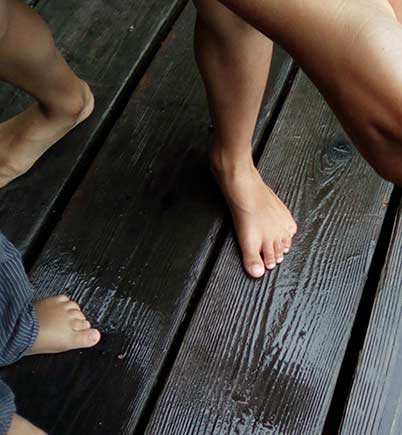Documentation and Identity – New lives of memories...
 Autumn has arrived. Where I live, in Biarritz, this is a special period. Cold mornings, hot afternoons. The sea is quiet and people are still swimming. I don't dare, it is too cold but somehow tempting. Colors change and trees are getting naked. 7 hours before my time zone, my family wakes up in Venezuela. There is no autumn there. There are no seasons but I can feel the different colors, temperature and of course different lives they are having while I am here.
Autumn has arrived. Where I live, in Biarritz, this is a special period. Cold mornings, hot afternoons. The sea is quiet and people are still swimming. I don't dare, it is too cold but somehow tempting. Colors change and trees are getting naked. 7 hours before my time zone, my family wakes up in Venezuela. There is no autumn there. There are no seasons but I can feel the different colors, temperature and of course different lives they are having while I am here.
This afternoon I will cook “arepas” for my children — a typical Venezuelan dish I have carried with me since my childhood to all the places I have lived in. Moving my hands to the “chimbanguele” rhythm I make small round shaped tortillas made of corn wheat. The drums of the “chimbanguele” music make my youngest son dance. These drums, like me, have kept traveling. Departed from Central Africa inside slavery boats, were hidden in the plantations, reconstructed with the liberation day of slavery, colonized by Spanish Catholicism, recorded by Sony music international corporation, embedded in my house through old personal recordings of my father in tapes and now passing to my children from my ipad. In a long story, these drums are still alive.
The dance of “chimbanguele” comes together with the drum, with the memories of all those who survived and fought for their right to be and to exist as free human beings —as they have lived before becoming slaves; singing, dancing and playing the drum.
I move in the kitchen, I smell my grandmother and sense the strong legacy her body has passed to me. Below me, the small feet are still moving, jumping, stamping the ground. He still does not know the hidden meaning of these steps. For him it is a fun action that emanates from his body with pleasure and joy, that of a body moving within a rhythm, that of a dancing body.
Stamping to kill, stamping for freedom –of the chains placed around the ankles. If I will not tell him, part of myself and that of my ancestors will die on the way. If I don't recall my memories and those that travelled from far away to arrive to my ears and body, no one will know. Who writes upon this?
If no one films the dance of the “chimbanguele”, its movements won’t arrive to other people. No one will ever see it, but most important if within the negro community of Venezuela no one takes care their roots, they will be blended with MTV, VEVO or whatever image represents afro nowadays. Is it so important? YES YES YES and thousand times YES.
Humans are based on identity and belonging. We leave in a global world that tends not to nurture diversity but to resemble all to a social commodity where difference is strangely viewed. Still our bodies are different, our feelings, our actions, they express in varied ways to expose who we are and how we feel and act. Dance is the supreme art form where identity is expressed, where human thoughts, acts, senses and feelings perform. When we dance we are in constant connection with our memories, our past and our heritage. Our body is a document, sedimentation of life that expresses enormous value. A wisdom that needs sharing, a wisdom that needs to be documented to enhance our reflection and further help sharing the beauty and strength of moving.
I am grateful I can dig in the archives and find knowledge about the dance that is inherited through my family, I am grateful I can read stories to my children and to other people that make me proud of my slave past and help defend the equality among humans among cultures and among dancers. I am grateful that reserving our memories is a free act; everyone can do and allow others to access it. Documenting dance, it is a matter of identity— of politics and ethics of the body, the self and the community we are embedded.
Today I am writing some small articles for the research project Reflex EUROPE, in link with IDOCDE site and its community. As part of my contribution; I am creating a path for the documentation of one's own praxis where I contextualize documentation, notation, dance digitalization, oral transmission and the different ways in which we "safeguard" our intangible knowledge.
I am proud to propose documentation as a reflexive resource for teaching, as a beautiful means to continue our beautiful legacies that secretly live within our bodies.
Bertha Bermudez, 26.10.2016
